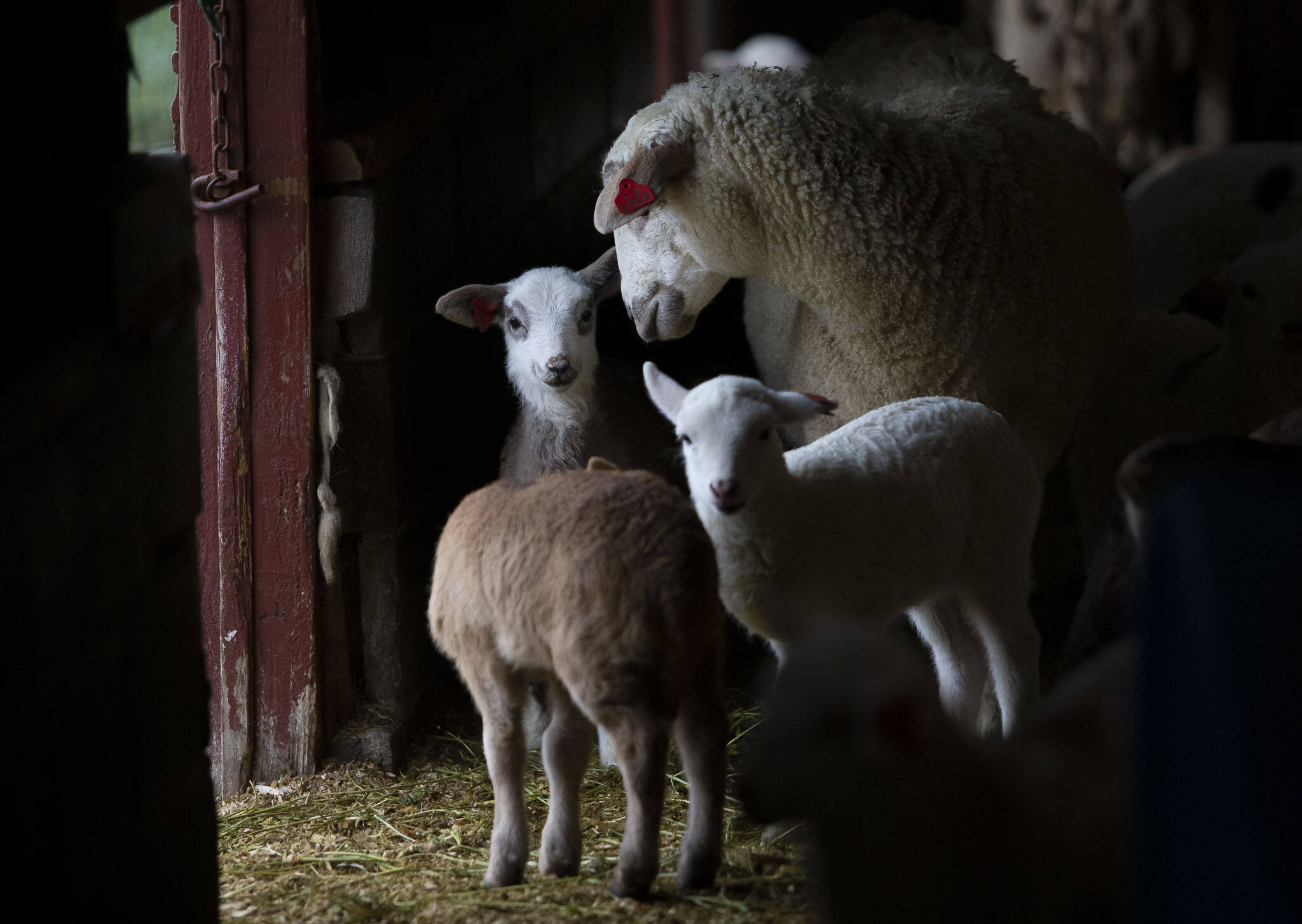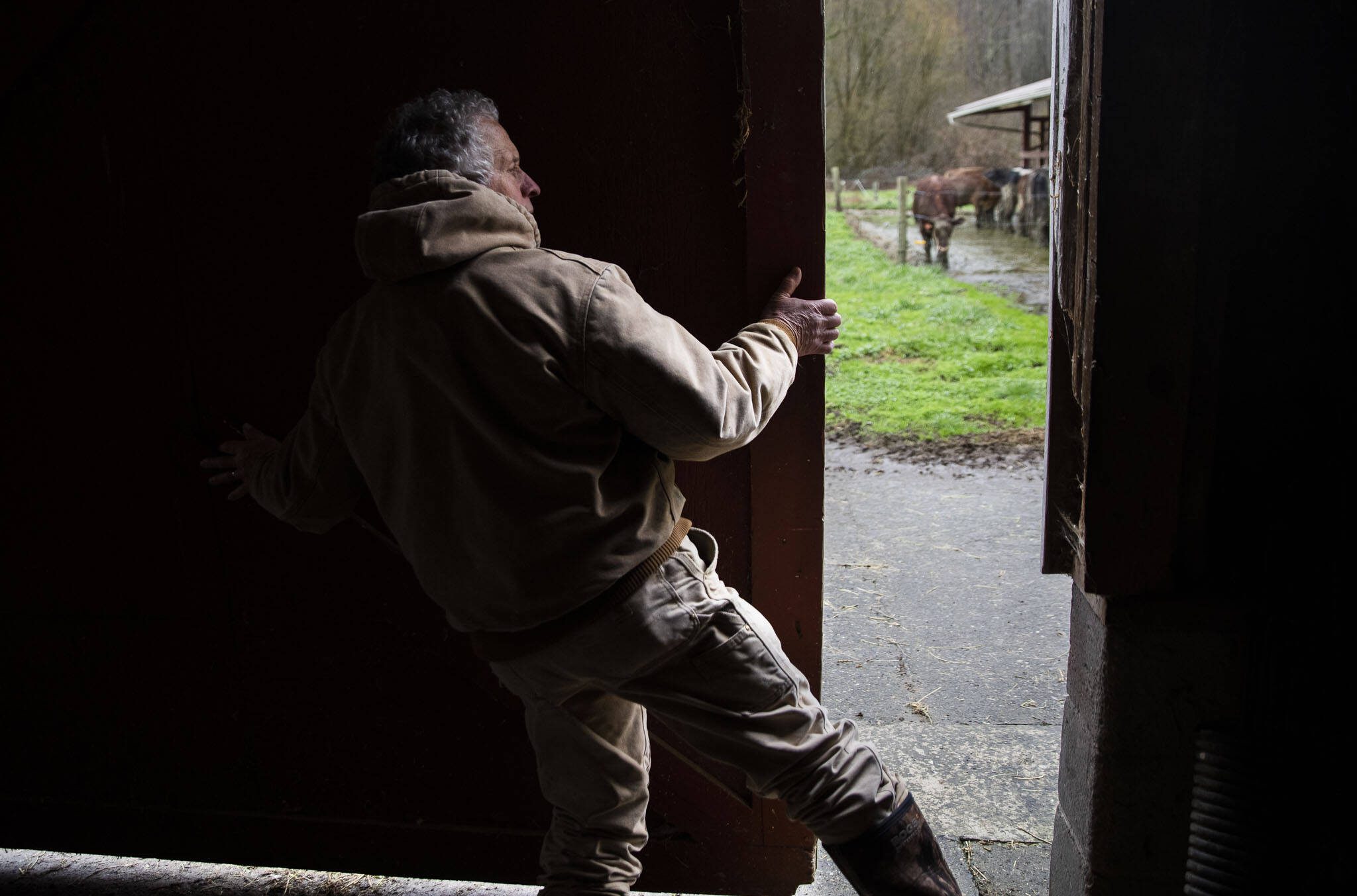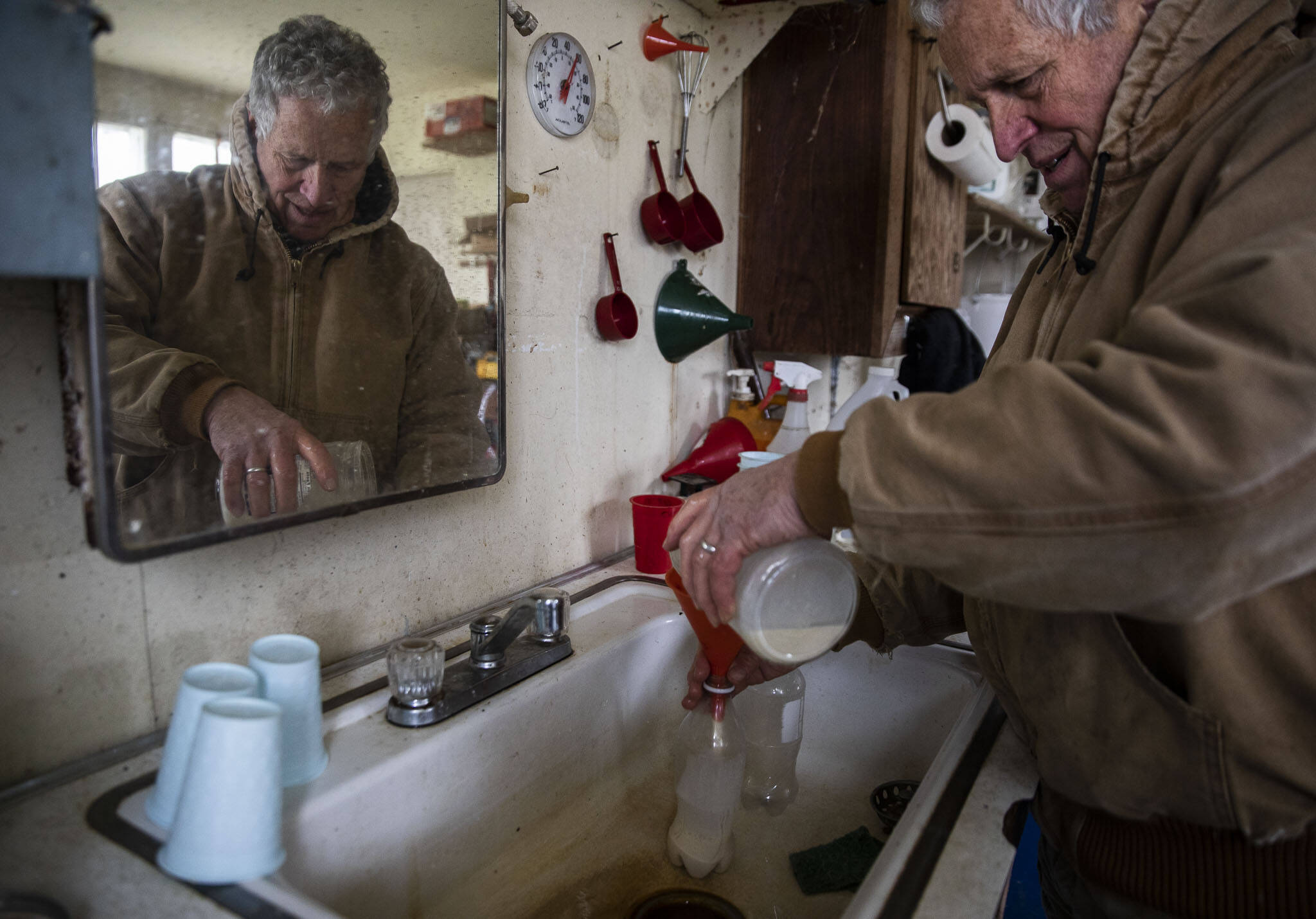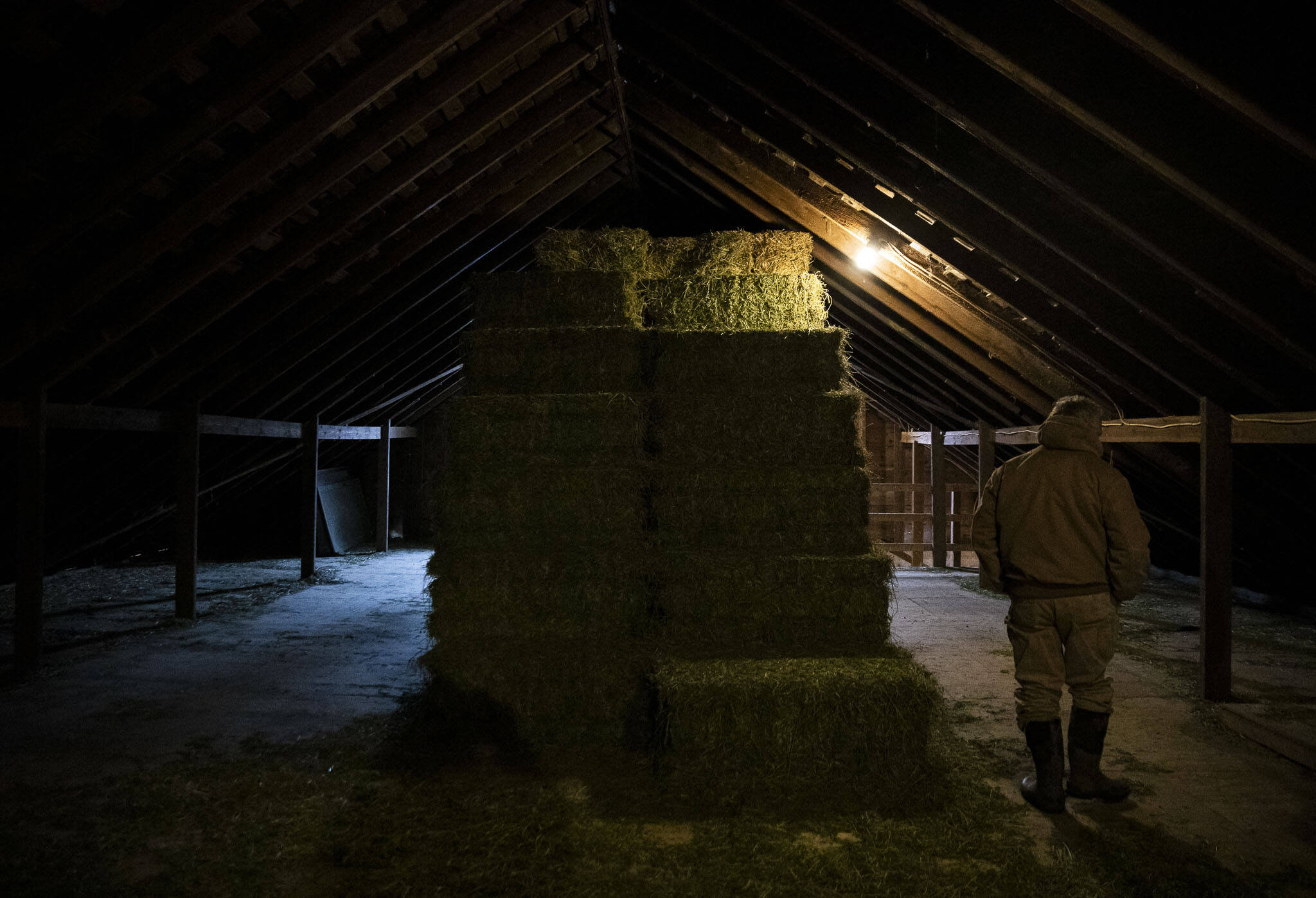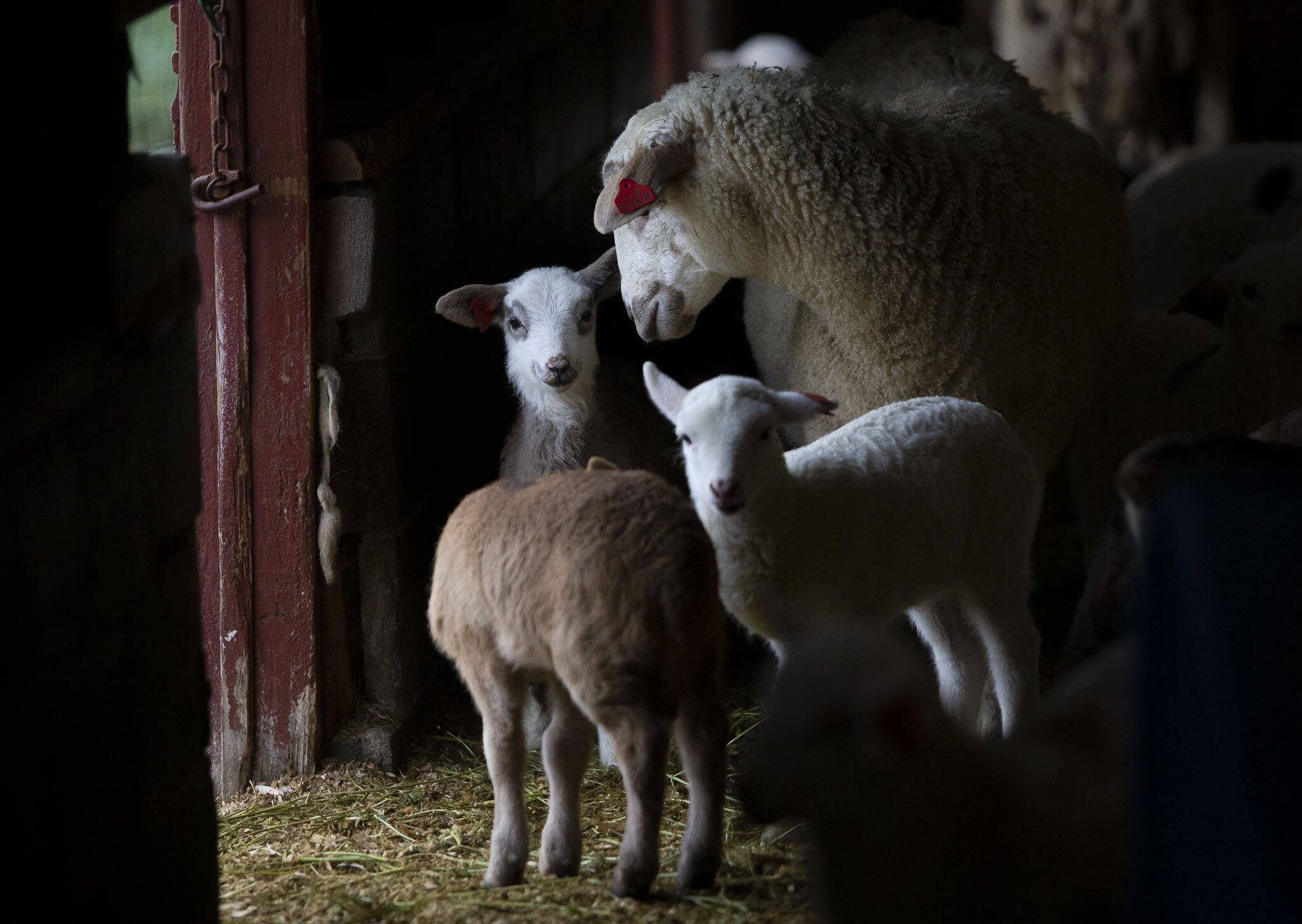ARLINGTON — In his barn on Tuesday, John Connolly looked at the ewes and lambs huddled together as the rain poured outside.
White, brown, black and spotted lambs, many just weeks old, stayed close to their mothers. As people neared, the flock baaed loudly and shifted to the other end of the barn.
This is the nursery, a communal area for ewes and lambs, Connolly explained. Nearby is the maternity ward, where moms and newborns bond in cozy pens.
Since early February, 29 ewes gave birth to 52 lambs at On The Lamb Farm, which raises grass-fed lamb and beef near the South Fork Stillaguamish River. The final baby was born on Monday.
The lambing season, typically late January through early March, is a critical time of year for Snohomish County farms.
“It’s very busy,” Connolly said. “I have to be very attentive.”
For farmers, it requires long hours in the barn.
If he sees a ewe going into labor, he puts her into her own pen. Sometimes a mom delivers while he is away, and he’ll come back to find twins, or even triplets. He ensures the moms start bonding with her babies, if they haven’t already.
“It’s very important the lambs start nursing their mother immediately, so they get benefit of the earliest milk that has the antibodies,” Connolly said.
Sometimes he has to guess which baby belongs to which ewe. But moms can distinguish their own lambs by smell.
“If she’s not the mother, she’ll butt it away,” he said.
Connolly started On The Lamb Farm with wife Sara-Jo Gahm in 1998. A Staten Island, New York, native, Connolly was previously a computer specialist and auditor. The two started farming because it fit with Gahm’s passion for training cattle dogs.
The two raise and sell lambs for meat. Other local farms raise sheep for wool and to show at competitions.
After more than 20 lambing seasons, Connolly and Gahm know to be vigilant.
“This year we had a lot of situations where we had to help, literally reach in and pull the lamb out,” Connolly said. “That is quite an adventure.”
Lambs stay with their mothers for eight weeks before they are weaned and put to pasture. Boy lambs — called wethers — live for a year or less before they are sold for meat, he said. They keep the girls for breeding or sell them to other farms.
On The Lamb Farm raises Katahdin Sheep, a breed that requires no shearing.
In the fall, two rams (brought in from another farm for genetic diversity) mated with 15 ewes each. All 30 ewes got pregnant, Connolly said.
Lambing season has occasional losses. Three lambs were stillborn, and one ewe died after she gave birth to twins. Sometimes a farmer can get a ewe to adopt another’s lambs with a few tricks, Connolly said. But no such luck this time.
So he bottle feeds the orphans with a milk replacement. He mixes the formula with water in an old peanut butter jar and pours it into plastic bottles with red nipples.
The twins, both boys, sucked up the drink eagerly. Despite losing their mom, they seem to be doing well.
“They are fat and lively and demanding,” Connolly said.
Spring lambing season has also gone well for Darrell Dockter, a longtime farmer east of Snohomish.
“We had a really good year,” he said. “We averaged two lambs per ewe.”
He shows sheep at livestock competitions and also sells breeding animals and lambs. After 50 years in the business, he said, he is still learning. He tries to improve care of the animals to select the ones with the best genes.
Lamb prices are expected to reach record highs this year due to low supply and strong demand, according to a February article in Meat and Poultry Magazine that cites a U.S. Department of Agriculture report.
Dockter said the higher prices will help offset impacts of inflation.
“Fuel for the tractor and the feed costs have gone out of sight,” he said.
When the Stillaguamish River flooded in October, it was in the middle of the breeding season, said Linda Neunzig, who operates Ninety Farms and is the Snohomish County agriculture coordinator.
The animals had to be evacuated, which she worried would stress the pregnant ewes. But lambing season has gone smoothly, she said.
“I‘ve not lost any babies, that’s always a good thing,” she said. “If everything survives, you’ve done your job.”
Neunzig sold Connolly and Gahm their first Katahdin sheep when they started their farm.
Connolly said the toughest part of the job is the isolation. With no employees, he enjoys when friends help.
“My favorite part,” he said, “is working with other people and showing other people around.”
Jacqueline Allison: 425-339-3434; jacqueline.allison@heraldnet.com. Twitter: @jacq_allison.
